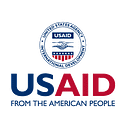Building Resilience with the Private Sector in the Midst of COVID-19
USAID CATALYZE was launched in October 2019 to support local and international businesses and investors, as well as other key market actors to solve the world’s most pressing challenges. Over eight years, CATALYZE intends to unlock $2 billion in private-sector financing for development impact, especially in underserved social sectors and frontier markets, using up to $250 million in catalytic capital from USAID. CATALYZE enables USAID to work with the private sector that delivers innovative programs in target countries and sectors that can be sustained over time with the mobilization of private capital.
CATALYZE’s Private Sector Approach to Covid-19
The COVID-19 pandemic has had far-reaching impacts on the global economy, presenting challenges with international finance and creating unique localized challenges that require both evidence-based incentive structures and adaptive responses. As drivers of economic growth and job creation, micro, small, and medium-sized enterprises (MSMEs) faced great disruptions to sectors, supply chains, and workforces. Lockdowns and limited technology expanded already troublesome and persistent development gaps, particularly in the agriculture, tourism, education, and manufacturing sectors. Many of these sectors require in-person workforces. Without the ability to allow for remote work or the capacity to institute social distancing, these MSMEs were at greater risk. CATALYZE responded swiftly, generating solutions to bolster resilience and an inclusive economic recovery.
CATALYZE adapted and developed innovative approaches to reach target communities and strengthen contributions to food security, market systems transformation, economic resilience, and educational outcomes for children. Last year, eight CATALYZE activities collectively mobilized $23.27 million in private capital for 74 firms in places such as North Macedonia, Peru, Serbia, Burkina Faso, and Zambia using blended finance approaches. The activities also awarded more than $800,000 in grants to vulnerable micro, small, and medium enterprises in Sri Lanka.
Key Achievements
EduFinance created COVID-19 response toolkits used in schools in Zambia, overcoming challenges in the transition to remote learning. The toolkit consisted of innovative methods such as utilizing the Pathways to Reopening guide and the formation of WhatsApp cluster groups to circulate important updates, and build relationships with peer schools, in order to counter barriers to learning, promote student engagement, and permit schools to remain open. In parallel, EduFinance also successfully tapped into creative outlets to support remote education, allowing teachers to deliver classroom lessons through radio programming. Further, EduFinance developed training to assist staff in understanding the psychological impact of COVID-19 and equip students with comprehensive coping techniques to identify and manage stress from the crisis. To date, EduFinance has mobilized $625,000 in private capital to non-state education providers in Zambia and will continue to extend its global reach to identify and collaborate with partners within the education sector.
Sri Lanka Private Sector Development (PSD) launched a COVID-19 adaptation grant fund for Sri Lankan companies focused on strengthening resilience to the economic impact of COVID-19, emphasizing the revival of small businesses, and creating job opportunities for women. PSD completed the co-creation process for concept notes and awarded COVID-19 adaptation grants to 23 MSMEs, totaling $874,539 across various sectors including textile manufacturing, agriculture, and healthcare IT. Currently, PSD is ramping up a second round of grants to provide direct relief to MSMEs impacted by the pandemic. This will supplement the adaptation grants to mobilize a larger number of smaller awards rapidly. These relief grants provided necessary funding for salaries, equipment, or technical assistance to mitigate losses from which MSMEs may not have otherwise recovered.
Western Balkans Engine of Growth (EoG) quickly pivoted to help vulnerable SMEs across multiple sectors to access finance so that they could stay afloat, stem the rise of unemployment in the wake of the pandemic, and eventually grow. EoG set two objectives to counter the negative impacts of COVID-19, including mobilizing working capital and restructuring debt to otherwise vulnerable SMEs, including women-owned SMEs. With this support, SMEs that have been negatively affected by COVID-19 could sustain operations, retain/rehire workers, and preserve capacity for future growth. EoG also compiled relevant available data on the transformative, long-lasting effects of the COVID-19 crisis and the impact of the pandemic on the health, real economy, financial markets, and government policy in the Western Balkans. EoG conducted a series of inclusive consultations with USAID Missions, SMEs, donors, and development finance institutions to spark interventions in North Macedonia and Serbia. The consultations have led to the launch of a business advisory service providers (BASP) network to mobilize financing needs for small businesses. Additionally, EoG developed a COVID-19 dashboard prototype to allow USAID and the broader public to get up-to-date information on the pandemic’s impact on health, economy, and government policies in the Western Balkans. The dashboard covers Albania, Bosnia and Herzegovina, Kosovo, Montenegro, North Macedonia, and Serbia at the country and regional levels. The data will inform policies and programs to support and assess the viability of SMEs in the Western Balkans. The dashboard was created using reliable sources from government agencies and international organizations.
This publication is made possible by the support of the American People through the United States Agency for International Development (USAID). The contents of this publication are the sole responsibility of CATALYZE implemented by Palladium and do not necessarily reflect the views of USAID or the United States Government.
